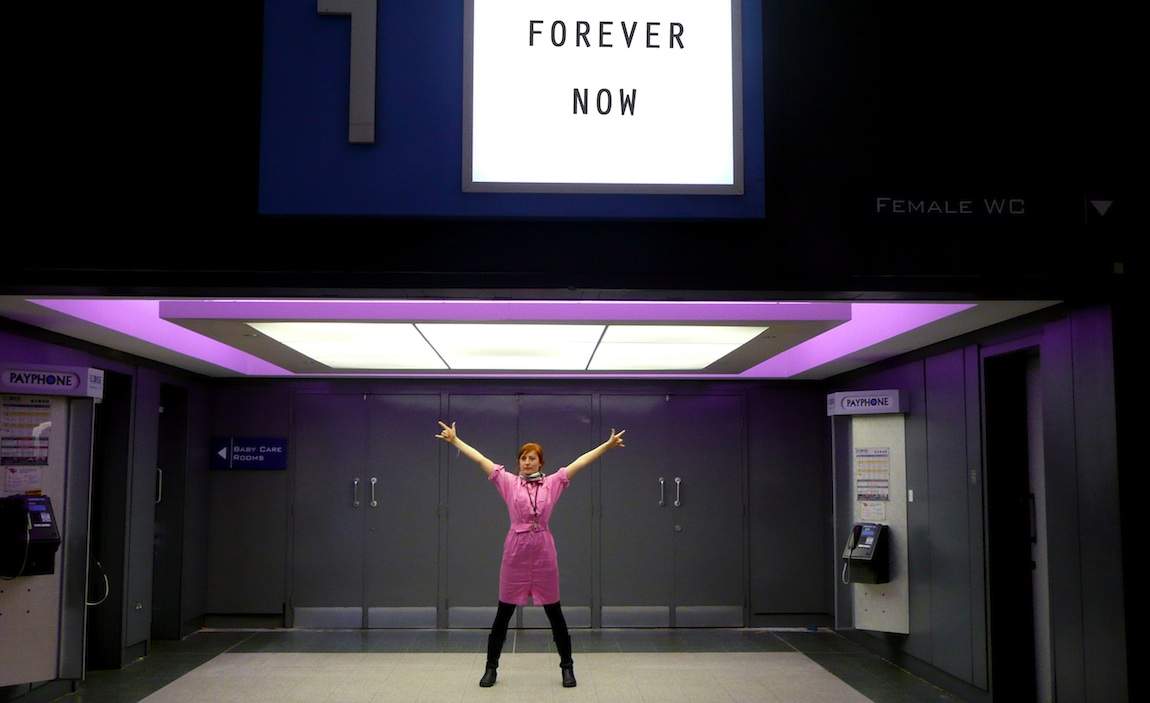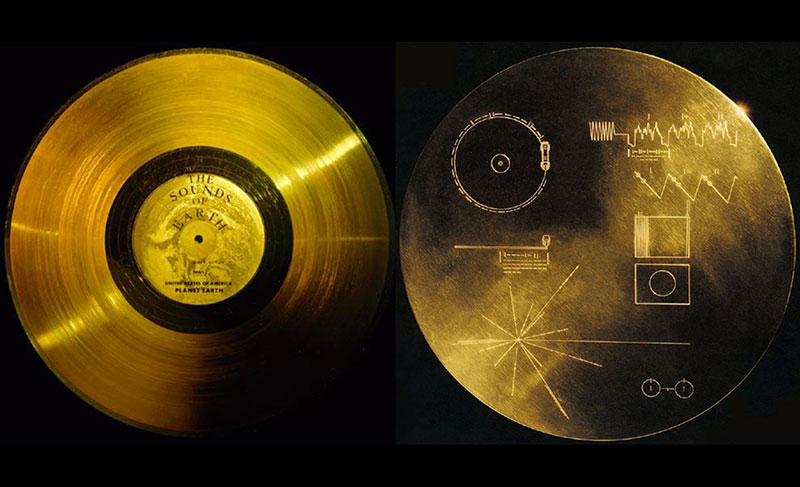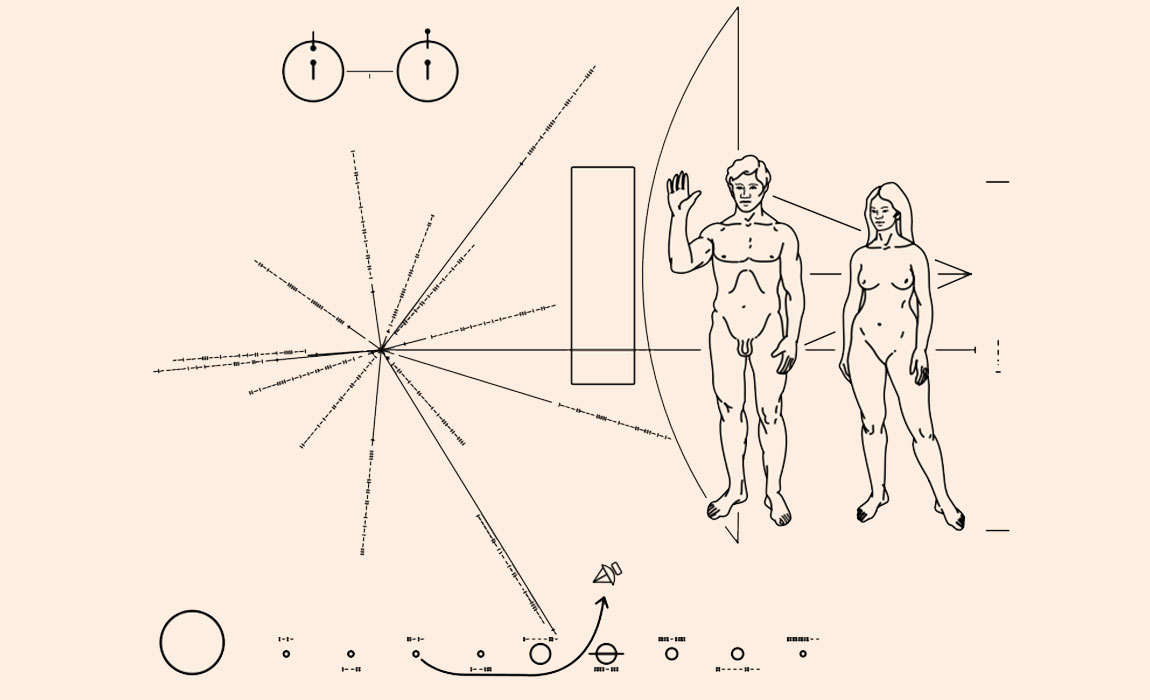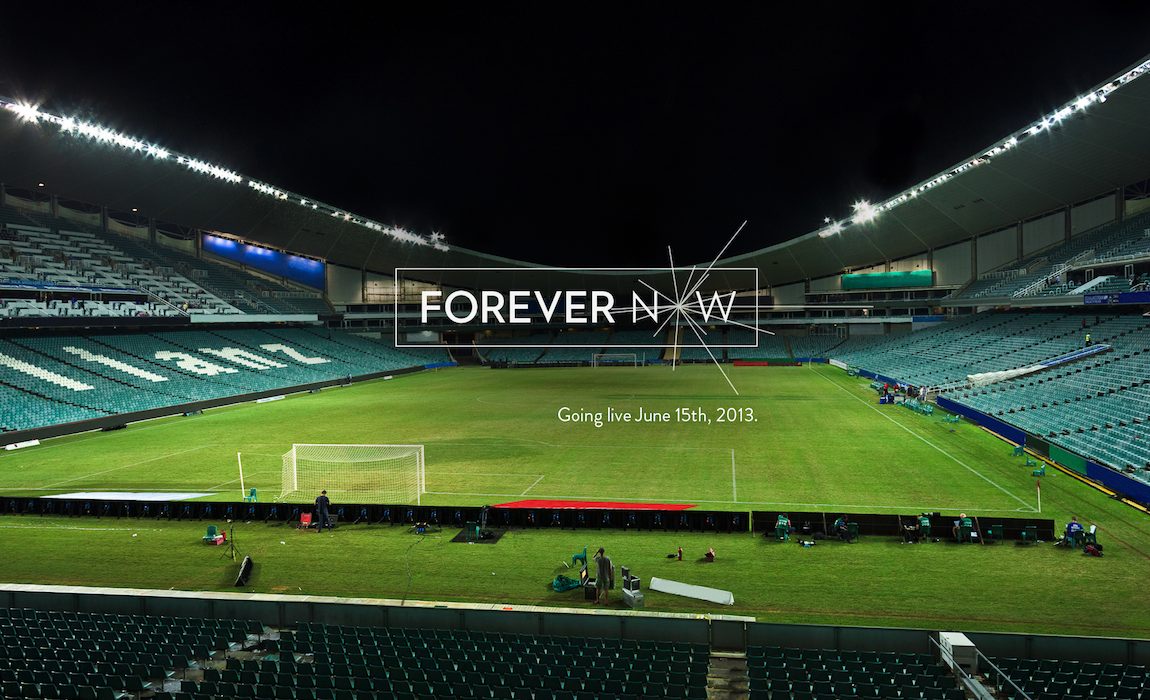Forever Now Will Launch Your Ideas Into Outer Space, Really
And digital democracy will determine the message we send to our alien buddies.
Has it ever crossed your mind that this is a ridiculously impossible idea and that you might not actually be able to do it? Artist Willoh S Weiland is on the other end of Skype and laughs at the question. "What I love about this project is that it's about the audience — people love doing stuff that's impossible. I think it's our job as a project team to make it a reality."
The project in question is Forever Now, an epic artistic and curatorial collaboration between MONAFOMA director Brian Ritchie (of Violent Femmes fame), Jeff Khan (director, Performance Space), Thea Baumann (artistic associate, Aphids) and jokingly self-titled 'Evil Overlord' Weiland (artistic director, Aphids). With the launch on June 15, the fantastic four will open the call out to anyone and everyone in the world to submit one-minute audiovisual artworks that represent humanity in the 21st-century. The team will select 44 applications to go on a digital golden record, which will then be launched into outer space at MONAFOMA 2014.
"Forever Now is the third in a trilogy of art science works that I've been doing over the last four years, all of which have explored space and astrophysics," says Weiland. "I thought that the ultimate challenge to complete this trilogy would be for us to try and get contemporary art actually into the galaxy."
Thirty-six years ago, NASA launched a Golden Record of its own into outer space on The Voyager spacecraft. Like the sci-fi version of the classic message in a bottle, there is hope that intelligent extraterrestrial life might discover the record, have the brains to correctly decipher the instructions, the fingers with which to operate them on a turntable and the sensory capacities to consume the record's contents and learn about our lonely planet. The Voyager is the furthest human thing from planet Earth, currently floating on the edge of our galaxy, about to enter interstellar space. Moreover, the Golden Record is made from gold-plated copper and uranium-238 that is designed to last over 4 billion years.
Weiland describes the differences between NASA's 1977 Golden Record and what she hopes to achieve with Forever Now: "Firstly, [the Voyager Record] was created in six weeks in a totally closed curatorial process by a group of scientists and cultural experts."
The Forever Now launch and open call for submissions is a direct reaction to that. "There was no digital democracy in 1977," says Weiland, "so the idea is that the curatorial process is completely transparent and able to be influenced by the public and that the record we compile will be an evolving process over six months."
A second point of difference, as she sees it, is to the curatorial limitations that NASA worked within. "They deliberately didn't send anything that was about conflict or war or argument or famine or anything — it was a very shiny, upbeat representation of humanity. So we want to look more at the queer and the horrible.”
On whether or not she believes in aliens, Weiland replies, "I think that one of the most exciting developments of the last thirty years compared to when the Voyager went out is the discovery of exoplanets (planets outside our Solar System) and also the absolute certainty that we will within my lifetime find biological life somewhere else."
And how might an alien respond if it got its hands (or other limbs) on the Forever Now record? "If they weren't a gas, I can only say what I'd hope, which is that they'd be curious about us and be compelled to find us," she says. "I think we've been trying to understand our own aloneness for a long time and I think finding that out, that we weren't, would be such an intense, massive shift. It would be like when they worked out that the world wasn't flat."
Plans for sending the physical record into outer space are yet to be confirmed, though Weiland declares, "We will do our valiant best to get it into space. We have a lot of possible plans ranging from gifting it to NASA, or to lesser known space programs like South Korea. The main issue in that is dealing with how much you have to compromise the content in order to participate in what is essentially a really militarised industry." There is also the possibility of launching Forever Now privately, "though this will carry implications for how far the work will be able to travel".
More information about the project will come to light at the official unveiling ceremony on June 15 at the State Library of New South Wales. "The launch in June is also the launch of the research and implementation for both Susan Cohn, who's making the record, for Erin Milne, who's working out how to get it into space, and for the curators, who are going to be talking to the public and dealing with the submissions process."
Forever Now is an Aphids project in association with Performance Space, MONAFOMA and Vitalstatistix. It launches as part of the Performance Space Switched On season, and the launch webcast can be watched on the their website.








